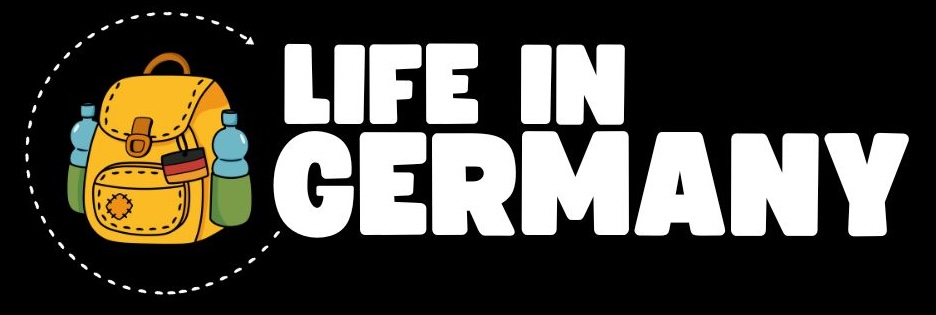If you’re moving and opening a bank account in Germany as an expat, there are a few important things you should know first. In this list, I cover the top 10 tips for opening a bank account in Germany as an expat, from choosing the right bank to navigating the paperwork process.
Opening a Bank Account in Germany
- 1. Decide Between Online or Branch Banking 🏦
- 2. Take Advantage of Opening an Account Remotely 🔒
- 3. Understand Debit Card Terminology in Germany 💳
- 4. Ask Specific Questions, Not General Ones 🤔
- 5. Explore Top Expat Bank Options: N26, Bunk, and DKB 🏦
- 6. Consider Branches if Important, But They’re Declining 🔒
- 7. Prepare the Required Documents 📄
- 8. Research the Best Money Transfer Options 🔍
- 9. Utilize the Life in Germany Welcome Program
- 10. Ask Me Anything in the Comments
1. Decide Between Online or Branch Banking 🏦
When choosing a bank in Germany, one of the first decisions you’ll need to make is whether you prefer the convenience of online banking or the accessibility of physical branch locations. In Germany, it’s common to find that banks prioritize their online services or branch locations, with varying levels of functionality and customer support.
Online Services for Expats
For expats and internationals moving to Germany, the online services offered by banks often provide the best experience. These services typically include English language support, allowing you to manage your accounts and access customer service in your preferred language. Additionally, online banking can offer extensive customer support in multiple languages, making it easier to navigate financial matters as a non-native German speaker.
Branch Locations and Online Communication
While some German banks do offer online communication services, they may not be as robust as those of banks that operate solely online. If having a physical branch nearby is important to you, it’s essential to consider the level of online functionality and support offered by your chosen bank. Keep in mind that the branch locations in Germany may not always provide the same level of English language support as their online counterparts.
2. Take Advantage of Opening an Account Remotely 🔒
Did you know that you can open a bank account in Germany without being physically present? This option can be a massive relief for expats who are in the process of relocating and need to secure essential services before their arrival. Opening a bank account remotely can streamline setting up your new life in Germany, allowing you to manage important financial matters from abroad.
Setting Up Your Account from Overseas
Many individuals are surprised to learn that they can initiate the process of opening a bank account in Germany while still residing outside the country. This can be particularly advantageous for expats who need to establish essential services, such as setting up direct deposits, paying bills, and managing financial obligations, before they arrive in Germany.
Requirements for Remote Account Opening
While banks may not actively promote the option of setting up accounts from overseas, it is indeed possible with the provision of a valid European address. This address is necessary to deliver your bank card, and it can be a crucial step in facilitating the transition to living in Germany. Whether using a friend’s address or that of temporary accommodation, having a valid European address allows you to receive your bank card and begin managing your finances before your physical arrival in the country.
3. Understand Debit Card Terminology in Germany 💳
One of the most confusing aspects for internationals moving to Germany is the variety of terms used for debit cards, such as “EC karte,” “maestro card,” and “Girokonto.” It’s important to understand that these are all essentially the same and fall under the category of debit cards. Despite the different names, they all serve the same purpose. It’s crucial to note that these are not credit cards, although some banks may offer an additional credit card, such as a Visa or Mastercard, alongside the debit card. Therefore, it’s essential to distinguish between the two when opening a bank account in Germany.
4. Ask Specific Questions, Not General One 🤔
When seeking advice on opening a bank account in Germany, it’s important to ask specific questions tailored to your individual needs. Rather than asking for the “best bank account for an expat,” consider specifying your requirements. For instance, if you’re a student on a budget, inquire about the best free bank account options. Alternatively, if you prioritize specific services, such as Service A and Service B, ask for recommendations that align with your preferences. Tailoring your questions to your unique circumstances will yield more personalized and relevant advice, ensuring you find the right bank account to suit your needs.
5. Explore Top Expat Bank Options: N26, Bunk, and DKB 🏦
When opening a bank account in Germany as an expat, there are several top bank options to consider. One popular choice is N26, known for its free card and 24/7 English customer support. Despite past controversies, N26 remains a good option for expats. DKB, a German online bank, also garners praise for its free and reputable services, though the application process is conducted in German.
N26: Free Card and 24/7 English Support
- Free card with no monthly fee
- 24/7 customer support in English
- Past controversies regarding GDPR regulations
DKB: Reputable German Online Bank
- Free and reputable services
- Application process conducted in German
6. Consider Branches if Important, But They’re Declining 🔒
If having a physical branch location is vital to your banking experience, it’s worth considering traditional banks such as Commerzbank, Deutsche Bank, or Sparkasse. However, it’s important to note that the number of branch locations for these banks in Germany is decreasing each year. Therefore, while branch accessibility is a factor to consider, it’s essential to recognize the declining availability of physical branch locations across various banks in Germany.
7. Prepare the Required Documents 📄
When opening a bank account in Germany, preparing the necessary documents to streamline the process is essential. You will typically need a form of identification, a European address, and a filled-out application form. The application form can often be completed online, but if you opt for a branch location, you may have the option to submit it via mail. Additionally, be prepared to deposit some money from your bank accounts in your home country to your new European bank account.
8. Research the Best Money Transfer Options🔍
Transferring money between your home country and Germany is a crucial aspect of managing your finances as an expat. It’s important to research and compare the different money transfer options available to find the most efficient and cost-effective solution for your needs. Whether you’re moving funds from Canada to Germany or vice versa, understanding the best transfer options can save you time and money in the long run. For detailed information on the various money transfer options available, including their benefits and potential drawbacks, check out my comprehensive blog post on international money transfer options to and from Germany.
9. Utilize the Life in Germany Welcome Program
If you’re planning to move to Germany, consider joining the Life in Germany Welcome Program. This program provides a step-by-step guide to help you with all the essential tasks you need to complete before and after your move. From filling out forms to setting up essential services, the program offers comprehensive support to ease your transition to life in Germany.
10. Ask Me Anything
If you have any questions or need further clarification about opening a bank account or saving money in Germany, feel free to email or book a call with me. I’m here to help and provide you with personalized advice to ensure a smooth banking experience in Germany as an expat.
Made with VideoToBlog




